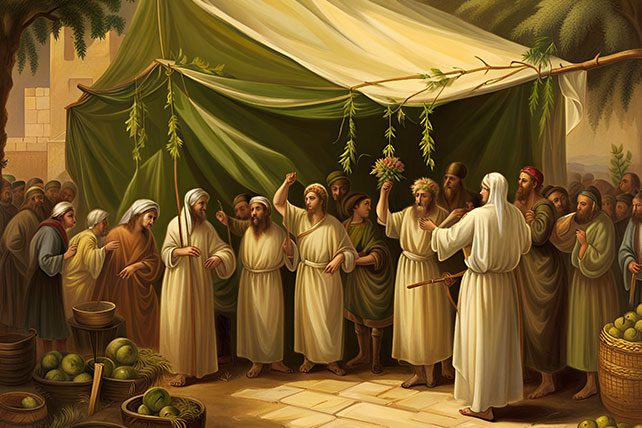Sukkot in the New Testament and Jesus’ Observance
The New Testament references the Feast of Tabernacles, notably in John 7, where Jesus attends the festival in Jerusalem. His participation and teachings during Sukkot provide significant insights into the messianic implications of the feast and its fulfillment in His ministry and mission.
RELATED: What Does Jesus’ Ministry Look Like?
Modern Celebrations and Interfaith Recognition
Today, the Feast of Tabernacles is celebrated by Jews worldwide with various customs that reflect historical traditions and contemporary interpretations. Some Christians also observe Sukkot, recognizing its theological significance and its roots in Jewish heritage, fostering a sense of shared history and spiritual kinship.
The Feast of Tabernacles encourages believers to reflect on themes such as divine provision, the importance of community, and the anticipation of God’s ultimate reign. It is a time for gratitude, remembering past deliverances, and looking forward with hope to future fulfillment.
The Universal Message of Sukkot
The Feast of Tabernacles transcends its historical origins, offering a universal message of trust, gratitude, and hope. Whether observed in a sukkah in Jerusalem, a church in the heartland, or a gathering in any corner of the world, Sukkot invites individuals to pause, reflect, and celebrate the enduring presence and promises of God in the tapestry of human history and the rhythms of natural life. It reminds us of our shared journey toward a future marked by divine love, peace, and restoration.

